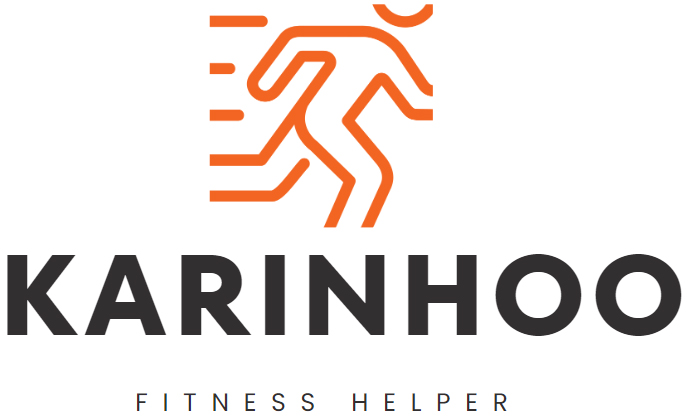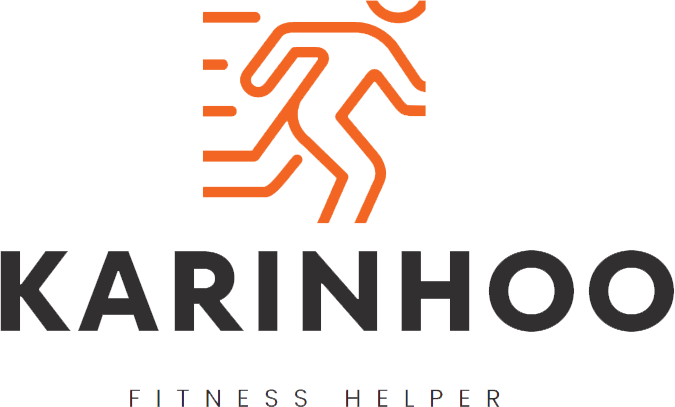Benefits of Combining Marathon Training with a Weight Loss Strategy
Marathon training and weight loss are both challenging goals that require dedication, discipline, and determination. However, when these two endeavors are combined, the benefits can be even more significant. Integrating marathon training into your weight loss strategy can provide numerous advantages that help you achieve your goals faster and more effectively. Let’s explore some of these benefits.
First and foremost, marathon training is a highly demanding physical activity that burns a significant number of calories. When you engage in regular running sessions, your body becomes a calorie-burning machine. By incorporating marathon training into your weight loss strategy, you can take advantage of this calorie expenditure to create a calorie deficit, which is essential for weight loss. As a result, you can accelerate your progress and shed those extra pounds more efficiently.
Additionally, marathon training helps improve your cardiovascular fitness. Running for long distances challenges your heart and lungs, making them stronger and more efficient. This enhanced cardiovascular fitness not only allows you to perform better during your running sessions but also improves your overall health and well-being. When combined with weight loss efforts, increased cardiovascular fitness can lead to improved heart health and reduced risk of chronic diseases such as heart disease and diabetes.
Furthermore, integrating marathon training into your weight loss strategy can provide you with a sense of accomplishment and boost your self-esteem. Completing a marathon is an incredible achievement that requires months of preparation, dedication, and mental resilience. Crossing the finish line can give you a tremendous sense of pride and confidence, which can translate to other areas of your life, including your weight loss journey. The mental strength and determination developed during marathon training can help you stay motivated and overcome challenges on your weight loss path.
Moreover, combining marathon training with a weight loss strategy allows for a more balanced approach to fitness. While weight loss primarily focuses on calorie restriction and creating a calorie deficit, marathon training emphasizes the importance of fueling your body properly. Marathon runners need to consume adequate nutrients to support their training and recovery. By incorporating marathon training into your weight loss strategy, you can develop a more sustainable and balanced eating plan that nourishes your body for optimal performance and weight loss.
Integrating marathon training into your weight loss strategy can provide numerous benefits. It allows you to burn a significant number of calories, improve your cardiovascular fitness, boost your self-esteem, and develop a more balanced approach to fitness. By combining these two goals, you can maximize your efforts and achieve remarkable results. So lace up your running shoes, set your weight loss goals, and get ready to go beyond the finish line!
Developing a Balanced Diet Plan for Marathon Training and Weight Loss
When it comes to combining marathon training with a weight loss strategy, developing a balanced diet plan is crucial. Without proper nutrition, your body will not have the energy it needs to fuel your workouts and support weight loss. Here are some key considerations to keep in mind when developing your diet plan.
First and foremost, it’s important to focus on consuming a variety of nutrient-dense foods. This means including a mix of lean proteins, whole grains, fruits and vegetables in your meals and snacks. Lean proteins, such as chicken, fish, and tofu, provide the amino acids your muscles need to repair and grow after intense training sessions. Whole grains, like quinoa and brown rice, are high in fiber and can help keep you feeling full and satisfied. And don’t forget about the power of fruits and vegetables – they’re packed with vitamins, minerals, and antioxidants that support overall health.
In addition to the types of foods you eat, portion control is also key. It can be tempting to overeat, especially after a long run or intense workout, but consuming more calories than you burn can hinder your weight loss progress. To ensure you’re eating the right amount, consider using measuring cups, food scales, or smartphone apps to track your portion sizes. It’s also helpful to pay attention to your body’s hunger and fullness cues. Eat until you’re satisfied, not overly stuffed.
Timing your meals and snacks properly can also make a difference in both your training and weight loss efforts. Aim to eat smaller, well-balanced meals every three to four hours to keep your energy levels stable throughout the day. This can help prevent overeating later on. Additionally, fueling up with a combination of carbohydrates and protein before and after workouts can aid in muscle recovery and repair.
While it’s important to focus on the types and amounts of food you’re consuming, hydration should not be overlooked. Staying properly hydrated is crucial for overall health, athletic performance, and weight loss. Aim to drink plenty of water throughout the day, especially during and after your workouts. If you’re training for a marathon, you may also need to replenish electrolytes lost through sweat with a sports drink or electrolyte-rich foods.
To ensure you’re meeting all your nutritional needs, it can be helpful to consult with a registered dietitian or nutritionist who specializes in sports nutrition. They can provide personalized guidance based on your specific goals, training schedule, and dietary preferences.
Remember, developing a balanced diet plan is essential when integrating marathon training into your weight loss strategy. By fueling your body with the right nutrients at the right times, you can optimize your training, support weight loss, and achieve your goals beyond the finish line.
Integrating Strength Training for Optimal Weight Loss Results During Marathon Training
Marathon training is not only about running long distances; it is also an opportunity to optimize your weight loss goals. While running helps you burn calories and shed pounds, incorporating strength training into your marathon training regimen can take your weight loss efforts to the next level. Strength training not only builds muscle mass but also boosts your metabolism, allowing you to burn more calories throughout the day. By combining marathon training with strength training, you can create a powerful weight loss strategy that goes beyond the finish line.
One of the key benefits of strength training during marathon training is the preservation of lean muscle mass. As you increase your running mileage to train for a marathon, there is a risk of losing muscle mass along with fat. However, incorporating strength training exercises, such as weightlifting or bodyweight exercises, helps to preserve and even build muscle mass. This is especially important for weight loss, as maintaining or increasing muscle mass boosts your metabolism and enables you to burn more calories, even at rest.
Another advantage of strength training for weight loss during marathon training is that it helps correct muscle imbalances and reduces the risk of injury. Running primarily engages certain muscle groups, such as the quadriceps and hamstrings, while neglecting others like the glutes and core muscles. By including strength exercises that target these neglected areas, you can improve overall muscle balance and reduce the risk of injury. This is vital during marathon training, as injuries can disrupt your training schedule and hinder your weight loss progress.
In addition to building muscle mass and preventing injuries, strength training also enhances your running performance. Building stronger muscles through exercises like squats, lunges, and planks can improve your running economy and efficiency. As a result, you will be able to maintain a faster pace and cover longer distances, burning more calories and accelerating your weight loss progress.
To integrate strength training into your marathon training and weight loss strategy, aim for at least two to three sessions per week. Focus on compound exercises that engage multiple muscle groups simultaneously, such as squats, deadlifts, push-ups, and rows. Include both upper and lower body exercises to ensure balanced strength development. If you are new to strength training, consider working with a qualified personal trainer who can design a program tailored to your needs and goals.
Remember to allow adequate rest and recovery between strength training sessions to avoid overtraining and promote muscle repair. Consider alternating your strength training days with running or other cardio workouts to allow your body to recover while still working towards your weight loss goals.
Integrating strength training into your marathon training regimen is a powerful strategy for optimizing weight loss. Strength training helps preserve lean muscle mass, correct muscle imbalances, reduce the risk of injury, and enhance running performance. By incorporating strength exercises into your training routine, you can create a well-rounded approach that goes beyond the finish line, helping you achieve your weight loss goals while conquering the marathon challenge.
Monitoring and Adjusting Calorie Intake During Marathon Training and Weight Loss Journey
When it comes to integrating marathon training into your weight loss strategy, monitoring and adjusting your calorie intake is essential. Proper nutrition plays a vital role in fueling your body for long-distance running while also supporting weight loss goals. Here are some tips to help you track and adjust your calorie intake during your marathon training and weight loss journey.
First and foremost, it’s crucial to determine your daily calorie needs based on your individual needs and goals. This can be done by calculating your basal metabolic rate (BMR) and then adjusting it according to your activity level. It’s recommended to consult with a registered dietitian or nutritionist who can provide personalized guidance and help you establish a suitable calorie range.
Once you have determined your calorie needs, the next step is to track your food intake. There are several online tools and mobile apps available that can assist you in monitoring your calorie consumption. It’s essential to be consistent and diligent in recording everything you eat and drink throughout the day to gain a comprehensive understanding of your nutritional intake.
In addition to tracking your calorie intake, it’s important to assess the quality of the calories you consume. While it may be tempting to opt for highly processed, calorie-dense foods during marathon training, focusing on nutrient-rich options is crucial for overall health and weight loss. Incorporate a variety of fruits, vegetables, whole grains, lean proteins, and healthy fats into your diet to ensure you meet your nutritional requirements.
As you progress through your marathon training and weight loss journey, it’s essential to regularly reassess and adjust your calorie intake. This is particularly important as your training volume and intensity increase. It’s recommended to consult with a professional to make sure you are adequately fueling your body while also creating a caloric deficit for weight loss.
One method to adjust your calorie intake is by increasing or decreasing portion sizes based on your estimated energy expenditure. As your mileage and training intensity increase, you may need to slightly increase your calorie intake to maintain energy levels and support recovery. Conversely, during periods of reduced training volume or rest days, reducing calorie intake can help prevent weight gain.
Another important consideration is proper hydration. Staying hydrated is crucial for both marathon training and weight loss. Drinking enough water throughout the day can help support your body’s functions, enhance performance, and promote weight loss. It’s recommended to drink water before, during, and after your workouts, as well as maintaining adequate hydration throughout the day.
Monitoring and adjusting your calorie intake is vital when integrating marathon training into your weight loss strategy. Make sure to calculate your individual calorie needs, track your food intake, and focus on nutrient-rich options. Regularly reassess your calorie intake and adjust as necessary, and don’t forget to stay hydrated. By paying attention to your nutrition, you can optimize your marathon training while achieving your weight loss goals.
Tips for Staying Motivated and Overcoming Challenges in Marathon Training and Weight Loss
Embarking on a marathon training journey while simultaneously working towards weight loss goals can be both challenging and rewarding. Integrating these two endeavors requires dedication, discipline, and the ability to stay motivated. Here are some valuable tips to help you stay on track and overcome challenges along the way.
-
Set Realistic Goals: When combining marathon training with weight loss, it’s crucial to set achievable goals that align with your current fitness level. Setting realistic targets will prevent frustration and keep you motivated throughout the journey. Break down your goals into smaller milestones to track your progress effectively.
-
Create a Training Schedule: Consistency is key when training for a marathon and losing weight. Develop a training schedule that includes specific days for running, strength training, and rest. Having a structured routine will not only help you stay accountable but also ensure you have enough time to recover and prevent injuries.
-
Find an Accountability Partner: Having a workout buddy or accountability partner can significantly boost your motivation. Partnering with someone who shares similar goals and interests can provide external support, encouragement, and friendly competition. Moreover, it can make your training sessions more enjoyable and less daunting.
-
Mix Up Your Workouts: To avoid monotony and prevent burnout, incorporate a variety of workouts into your training regimen. Besides running, engage in activities such as cycling, swimming, or yoga. Cross-training not only helps prevent overuse injuries but also keeps your mind engaged and adds excitement to your workouts.
-
Practice Mindful Eating: Fueling your body with the right nutrition is essential for both marathon training and weight loss. Adopting a mindful eating approach can help you make healthier food choices, control portion sizes, and listen to your body’s hunger and fullness cues. Focus on consuming whole, nutrient-dense foods that provide energy and support muscle recovery.
-
Stay Hydrated: Hydration plays a vital role in both athletic performance and weight loss. Make sure to drink an adequate amount of water throughout the day to prevent dehydration and support your body’s physiological functions. During marathon training, consider incorporating electrolyte-rich sports drinks to replenish lost minerals.
-
Celebrate Milestones: Recognize and celebrate your achievements along the way, both big and small. Completing a long run, achieving a weight loss milestone, or hitting a personal record are all significant accomplishments. Rewarding yourself with non-food-related treats, such as buying new workout gear or enjoying a relaxing massage, can keep you motivated and reinforce a positive mindset.
-
Overcome Obstacles: It’s important to acknowledge that challenges may arise during your marathon training and weight loss journey. Whether it’s facing a plateau in weight loss or experiencing a temporary setback in your running performance, stay resilient and adaptable. Seek support from fellow runners, fitness communities, or professionals who can provide guidance and encouragement.
Remember, integrating marathon training into your weight loss strategy requires patience, determination, and a positive mindset. Embrace the journey, celebrate every milestone, and keep pushing yourself to go beyond the finish line.
Conclusion
As we have explored in this article, integrating marathon training into your weight loss strategy can offer numerous benefits. By combining these two endeavors, you can not only shed unwanted pounds but also improve your cardiovascular fitness and overall health. The intense physical demands of marathon training can accelerate your weight loss efforts and provide a sense of accomplishment beyond just reaching the finish line.
Developing a balanced diet plan is essential when embarking on marathon training and weight loss simultaneously. Focusing on nutrient-dense foods such as lean proteins, complex carbohydrates, and healthy fats will fuel your body for training sessions while supporting weight loss. plenty of fruits and vegetables will provide essential vitamins and minerals to aid in recovery and overall well-being.
While marathon training primarily consists of running, incorporating strength training exercises into your routine can further enhance weight loss results. Strength training builds lean muscle mass, which in turn increases your metabolism and helps burn more calories even at rest. Adding exercises like squats, lunges, and planks will not only support your running performance but also contribute to your weight loss efforts.
Monitoring and adjusting your calorie intake throughout your marathon training and weight loss journey is crucial. It is essential to strike the right balance, ensuring you consume enough calories to fuel your training sessions while creating a calorie deficit to promote weight loss. Consulting with a registered dietitian can help you determine the appropriate caloric intake for your specific needs and goals.
Staying motivated and overcoming challenges during your integration of marathon training and weight loss requires dedication and perseverance. Setting realistic goals and celebrating small victories along the way can keep you motivated. Find a training buddy or join a running group to stay accountable and share your journey with like-minded individuals. Additionally, it is crucial to listen to your body, rest when needed, and seek support from professionals if you encounter any obstacles.
Integrating marathon training into your weight loss strategy can provide a holistic approach to achieving your fitness goals. By combining the benefits of cardiovascular exercise, strength training, and a balanced diet, you can optimize your weight loss results while experiencing the personal fulfillment of completing a marathon. Remember to monitor and adjust your calorie intake, stay motivated, and overcome challenges along the way. Upholding a positive mindset and embracing the journey will not only transform your body but also foster a sense of accomplishment beyond the finish line. So lace up your running shoes, fuel your body with nourishing foods, and start your marathon training journey towards a fitter and healthier you.






